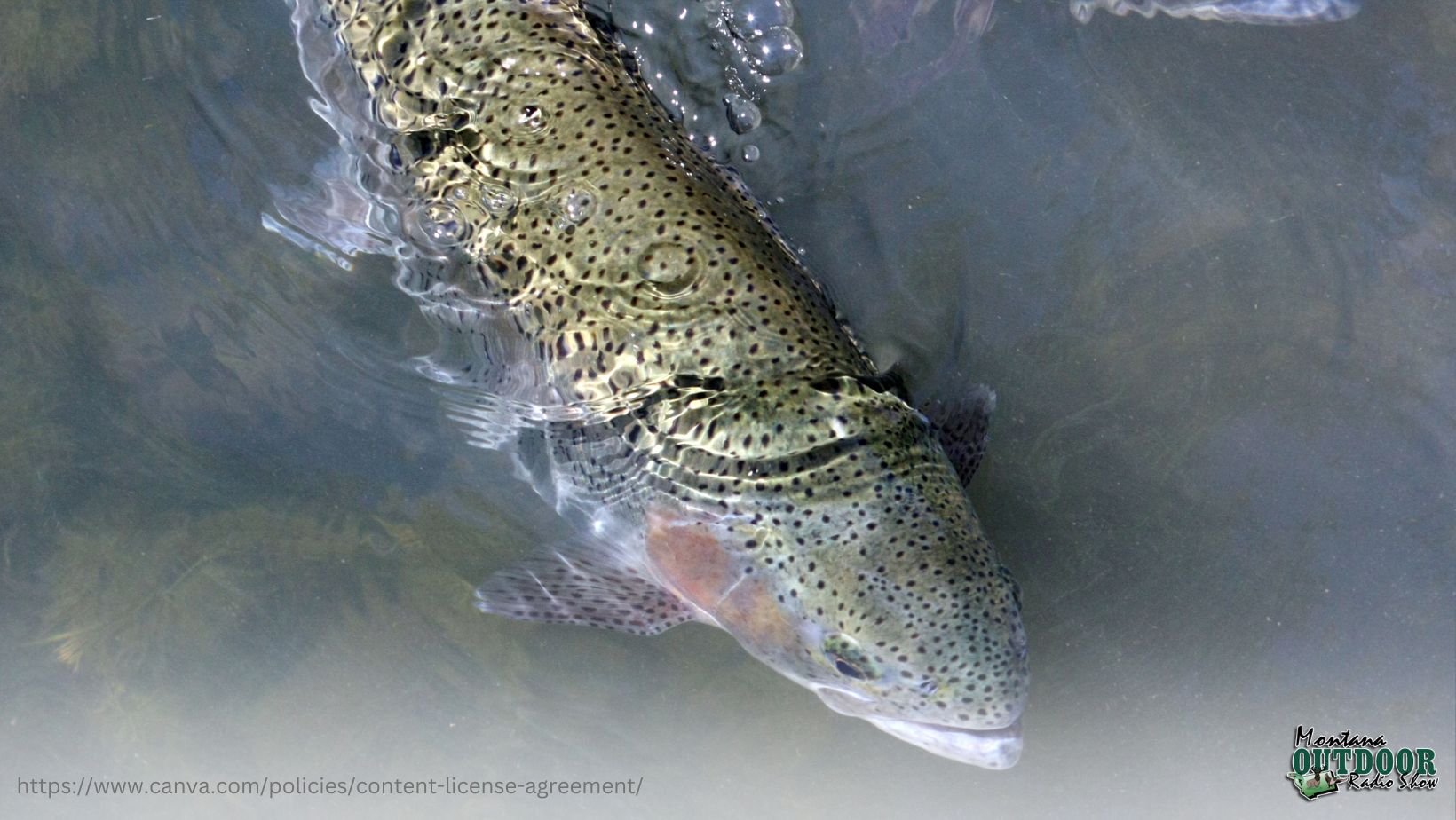Studies to focus on fish mortality, origins and health
HELENA – Dead trout. Sick trout. Trout with fungus on their skin. What is going on with the fish of the Big Hole, Beaverhead and Ruby Rivers?
Montana Fish, Wildlife & Parks in partnership with the Montana Cooperative Fishery Research Unit (MCFRU) at Montana State University wants to find out. Together, they are launching three studies to determine what is affecting fish abundance in these streams. A fourth study, conducted by FWP, will look at fish health and building capacity to sample fish for diseases.
“Those who work and recreate on these rivers are troubled by what they see happening to the trout populations,” said FWP Director Dustin Temple. “FWP is troubled, too, and staff have a plan in place to figure out what’s driving the decline in trout health and abundance. FWP along with private and public partners have a long history of effective conservation work on these rivers. This plan is the first next step towards understanding how those same partners can turn the current circumstance around.”
FWP fisheries staff in southwest Montana and MCFRU are finalizing how best to tackle this challenge. While the details are new, this collaborative is a familiar one. The research unit is a long-standing collaboration among FWP, MSU, U.S. Geological Survey and the U.S. Fish & Wildlife Service. Its mission is to conduct fisheries research, educate future fishery professionals and provide technical assistance to fisheries biologists working for state and federal agencies, nonprofits and industry.
“We’ve worked with FWP on hundreds of projects since our inception in 1963,” said Dr. Al Zale, the leader of MCFRU and a professor at MSU.
Those projects included native species restoration, fish diseases – especially whirling disease, catch-and-release mortality, predation, Missouri and Yellowstone river fisheries and much more.
FWP’s Region 3 fisheries manager Mike Duncan and his staff are comparing notes with MCFRU.
“We all met several times to come up with a plan of what knowledge gaps to fill,” Duncan said.
The three studies with MCFRU will focus on adult mortality, juvenile origins and survival and fish diseases.
Since 2011, trout numbers in these rivers have steadily declined and are now near historic lows. While those declines can be linked to low flows and warm water temperatures, the research projects will take a more in-depth look at other factors that may be affecting these fisheries.
The adult mortality study will involve tagging and tracking fish, Duncan said. FWP staff will capture and tag fish on the Big Hole, Beaverhead and Ruby rivers, along with the Madison River. The project will assess how flows, water temperatures, angling and disease influence survival.
As part of the study, fish biologists Matt Jaeger and Jim Olsen are developing adaptive management plans that will inform fishing regulations on the Big Hole, Beaverhead and Ruby rivers. “This could include spawning closures and catch-and-release as examples,” Duncan said.
The juvenile study will look at where fish are born and their spawning and rearing habitat. “We’ll mainly be looking in tributaries,” Duncan said. Biologists will sample the fish’s otolith, or ear bone, to determine where the fish has lived and traveled during its life. This work will help focus and direct potential habitat projects.
The third project will examine the level that disease is impacting trout populations on these three rivers. It will include testing for novel pathogens and help determine better ways to routinely sample fish for disease in the future.
Some of these projects will involve recruiting graduate students to work with MCFRU. “These usually take four or five years in fisheries science because of the seasonal cycles that regulate nature,” Zale said.
To accompany these projects, FWP will increase fish health monitoring and reporting resources. “We want to get a better handle on environment triggers and how pathogens are affecting the fisheries,” Duncan said.
The public can participate in fish health monitoring by reporting dead and sick-looking fish on the new web portal fwp.mt.gov/sickfish.
For more information and to follow the progress of the research projects, visit fwp.mt.gov/conservation/
-fwp-



